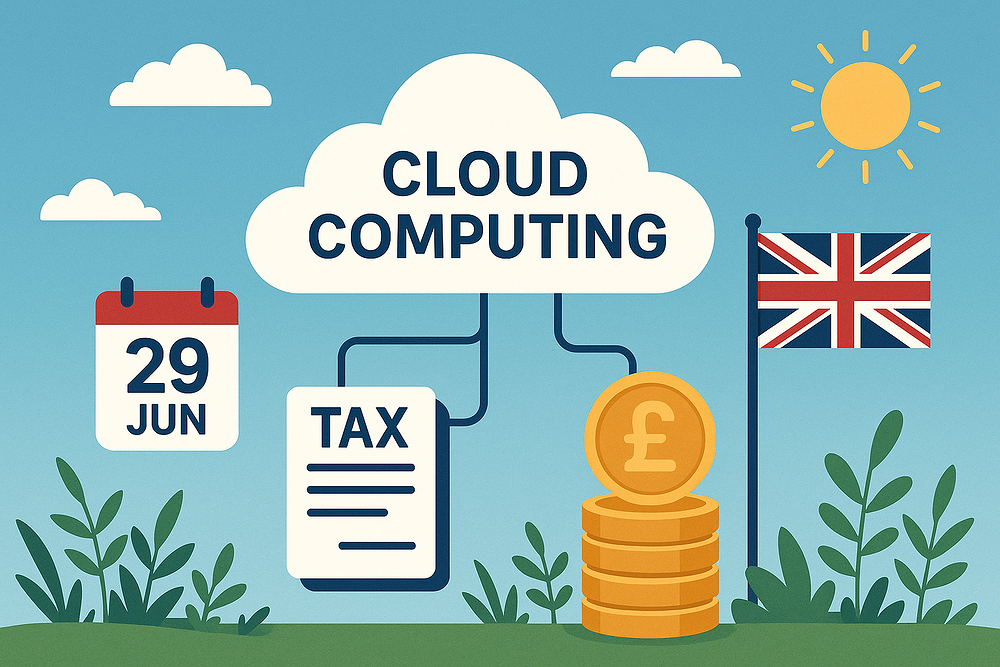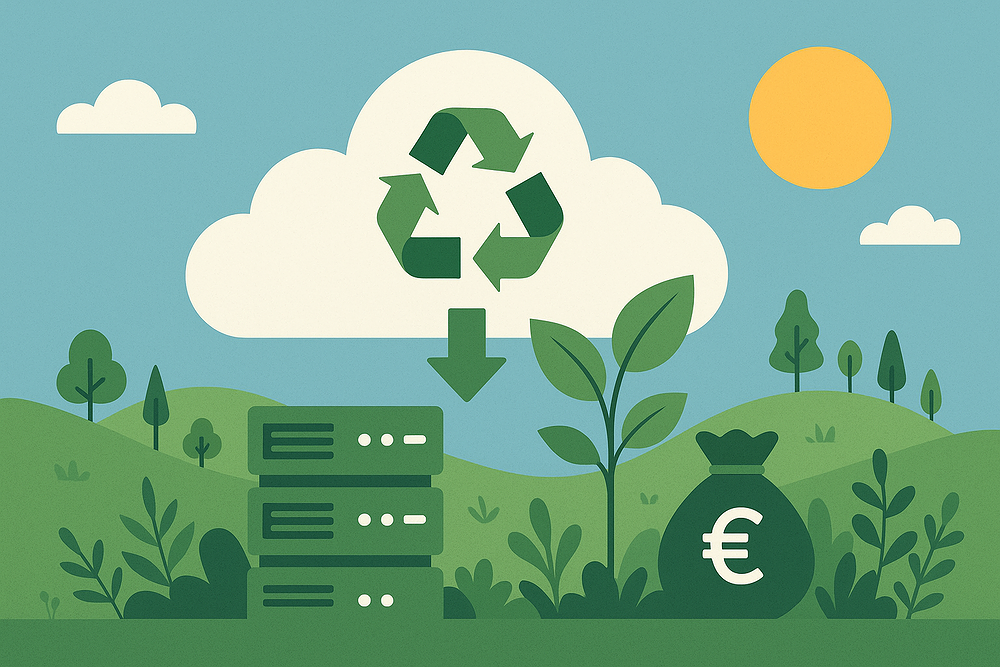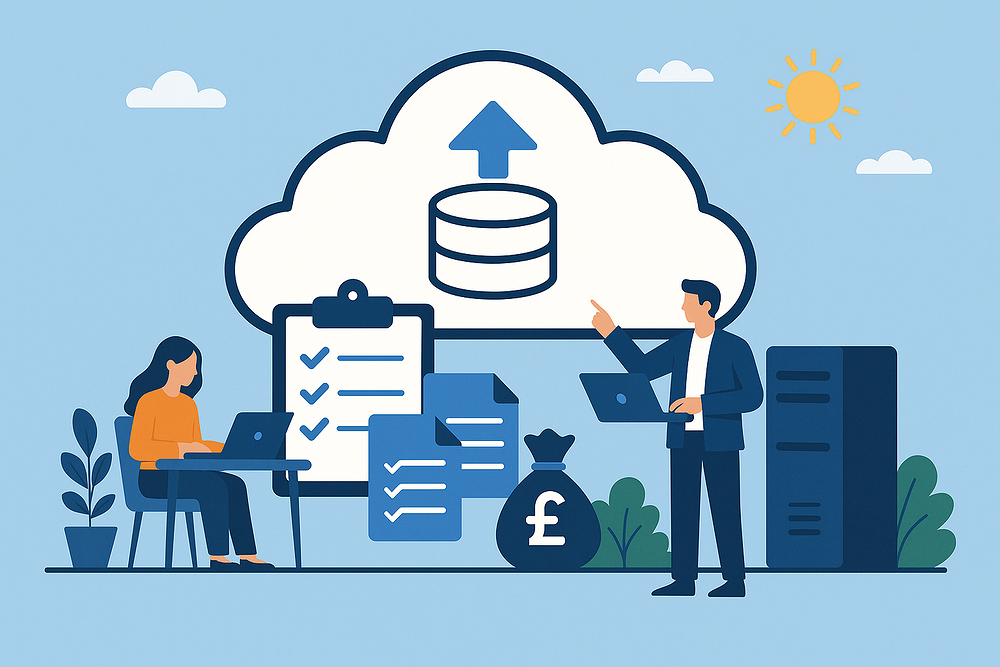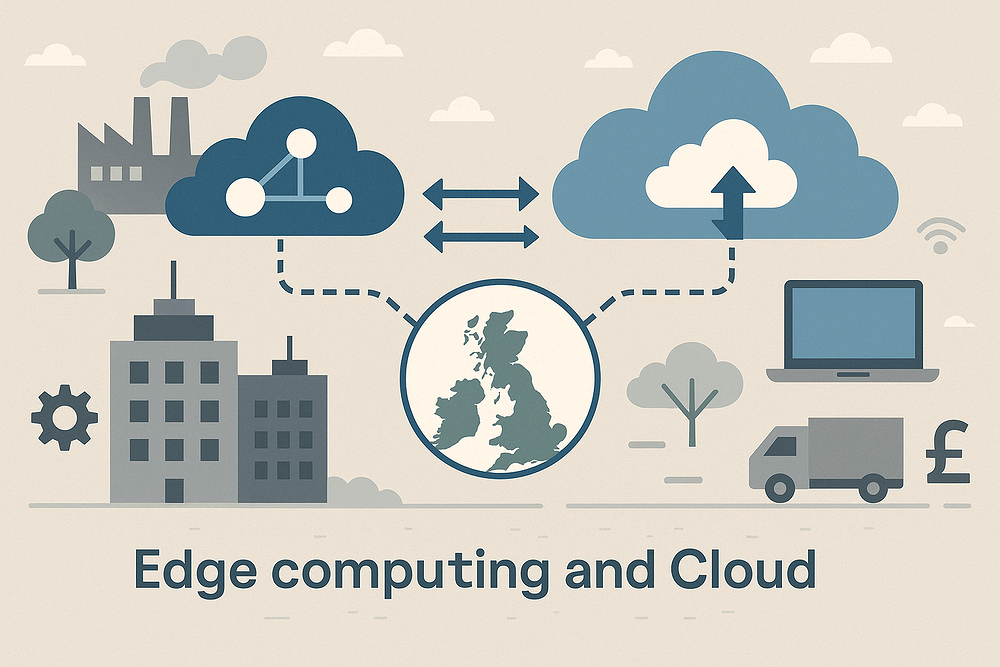The 2025 Guide to Cloud Computing Tax Incentives for UK Small Businesses

The 2025 Guide to Cloud Computing Tax Incentives for UK Small Businesses
In today's rapidly evolving digital landscape, cloud computing has become an essential component of business operations for organisations of all sizes. As we reach the midpoint of 2025, UK small businesses face both opportunities and challenges in leveraging cloud technologies while maximising their financial efficiency. At AppCoder, we understand that navigating the complex intersection of technology investments and tax planning can be daunting, which is why we've created this comprehensive guide to cloud computing tax incentives available to UK small businesses in 2025.
Understanding the Current UK Tax Landscape for Tech Investments
The UK government has consistently demonstrated its commitment to fostering technological innovation and digital transformation, particularly following the economic shifts that occurred in the early 2020s. The latest Finance Act, which came into effect in April 2025, introduces several key provisions specifically designed to encourage small businesses to invest in cloud technologies.
For the 2025/26 tax year, HMRC has expanded its definition of qualifying expenditure for technology investments, with cloud computing services receiving particular attention. This represents a significant opportunity for small businesses looking to optimise their tax position while modernising their IT infrastructure.
Key Cloud Computing Tax Incentives Available Now
1. Enhanced Capital Allowances for Cloud Infrastructure
One of the most substantial benefits introduced this year is the enhanced capital allowance rate for cloud infrastructure investments. Small businesses can now claim up to 150% of qualifying expenditure on cloud computing hardware and infrastructure as a first-year allowance. This represents a 20% increase from the previous tax year and applies to investments made between 6 April 2025 and 5 April 2026.
Qualifying expenditures include:
- Cloud server infrastructure
- Network equipment dedicated to cloud services
- Specialised hardware for cloud computing operations
- Physical security systems for cloud data centres
2. Cloud Services Subscription Tax Relief
Recognising the shift towards subscription-based cloud services, HMRC now offers a dedicated Cloud Services Subscription Tax Relief (CSSTR). This allows businesses to deduct up to 125% of their eligible cloud service subscription costs from their taxable profits. This super-deduction applies to a wide range of cloud services, including:
- Software as a Service (SaaS) subscriptions
- Platform as a Service (PaaS) expenditure
- Infrastructure as a Service (IaaS) costs
- Cloud storage solutions
- Cloud-based security services
To qualify, businesses must maintain proper documentation of their subscription agreements and demonstrate that these services directly contribute to business operations.
3. Digital Skills Training Tax Credit
The new Digital Skills Training Tax Credit (DSTTC) allows small businesses to claim up to £5,000 per employee for training specifically related to cloud technologies. This represents a significant increase from last year's cap of £3,500 and reflects the government's recognition of the growing skills gap in cloud computing expertise.
This credit applies to both internal training programmes and external courses, provided they meet HMRC's criteria for qualifying digital skills education. For small businesses investing in upskilling their workforce to better utilise cloud technologies, this represents a substantial opportunity to offset costs.
Recent Changes and Updates for Summer 2025
Following the Chancellor's Summer Economic Statement on 15 June 2025, several adjustments have been made to the existing incentive schemes:
- The threshold for qualifying as a "small business" for cloud computing tax incentives has been increased from £10.2 million to £12 million in annual turnover
- A new "Green Cloud Initiative" tax relief has been introduced, offering additional deductions for businesses that can demonstrate their cloud computing choices result in reduced carbon emissions
- The deadline for the Cloud Transition Voucher Scheme has been extended to 31 December 2025, giving businesses an additional six months to apply
These mid-year adjustments provide additional opportunities for businesses that may have previously been on the threshold of eligibility or those considering more environmentally sustainable cloud solutions.
Sector-Specific Cloud Computing Incentives
The government has also introduced targeted incentives for specific sectors that are considered strategic priorities for digital transformation:
Healthcare Sector
Healthcare providers can access an additional 10% relief on cloud solutions that facilitate patient data management, telemedicine, or healthcare analytics. This comes as part of the broader NHS Digital Transformation Programme announced in March 2025.
Manufacturing
Manufacturing businesses implementing cloud-based Industrial Internet of Things (IIoT) or digital twin technologies can claim an additional £15,000 tax credit under the Manufacturing Digitalisation Fund.
Retail
Retail businesses transitioning to cloud-based inventory and customer relationship management systems are eligible for simplified claiming procedures and priority processing under the Retail Revival Scheme.
How to Claim Your Cloud Computing Tax Incentives
Claiming these incentives requires careful planning and documentation. Here's a straightforward process to ensure you maximise your benefits:
- Audit your current cloud expenditure - Categorise all cloud-related costs according to the qualifying criteria
- Maintain detailed records - Document all subscription agreements, invoices, and proof of payment
- Link expenditure to business outcomes - Be prepared to demonstrate how cloud investments contribute to your business operations
- Consider timing - Some incentives are more favourable when investments are made at specific times in the tax year
- Consult with specialists - Work with technology and tax professionals who understand both the technical and financial aspects
Remember that the deadline for claiming most of these incentives aligns with the standard self-assessment deadline of 31 January 2026 for the 2025/26 tax year.
Common Pitfalls to Avoid
While these incentives offer significant benefits, there are several common mistakes that can limit your ability to claim:
- Failing to distinguish between operational and capital expenditure for cloud services
- Not maintaining sufficient documentation of the business purpose for cloud investments
- Missing the distinction between general IT costs and specific cloud computing expenditure
- Overlooking the need to claim certain incentives in advance
- Failing to account for partial eligibility where cloud services support both business and non-business activities
Planning Your Cloud Strategy with Tax Efficiency in Mind
As we move into the second half of 2025, now is an ideal time to review your cloud computing strategy with these tax incentives in mind. Consider the following approaches:
- Evaluate whether accelerating planned cloud investments into the current tax year would be advantageous
- Assess whether your current cloud service providers offer solutions that maximise your eligibility for tax incentives
- Consider consolidating multiple cloud services to simplify documentation and claiming processes
- Explore hybrid approaches that optimise both technological and tax efficiency
How AppCoder Can Help
At AppCoder, we specialise in helping UK small businesses navigate both the technical and financial aspects of cloud computing. Our services include:
- Cloud readiness assessments with tax incentive optimisation
- Implementation of cloud solutions designed to maximise eligible expenditure
- Documentation preparation for tax incentive claims
- Ongoing advisory services to keep you updated on changing incentives and opportunities
With the tax landscape constantly evolving, having a partner who understands both the technological and financial dimensions of cloud computing is invaluable for small businesses looking to maximise their return on investment.
Conclusion
The 2025 tax incentives for cloud computing represent a significant opportunity for UK small businesses to accelerate their digital transformation while optimising their tax position. By understanding the available incentives, maintaining proper documentation, and strategically timing investments, businesses can substantially reduce the effective cost of essential cloud technologies.
As we move through the remainder of 2025, staying informed about these incentives and working with knowledgeable partners will be key to maximising both technological capabilities and financial efficiency. At AppCoder, we're committed to helping UK small businesses navigate this complex but rewarding landscape.
Talk to us about your next project
Our team of experts is ready to help bring your ideas to life with solutions tailored to your business.
Get in Touch

